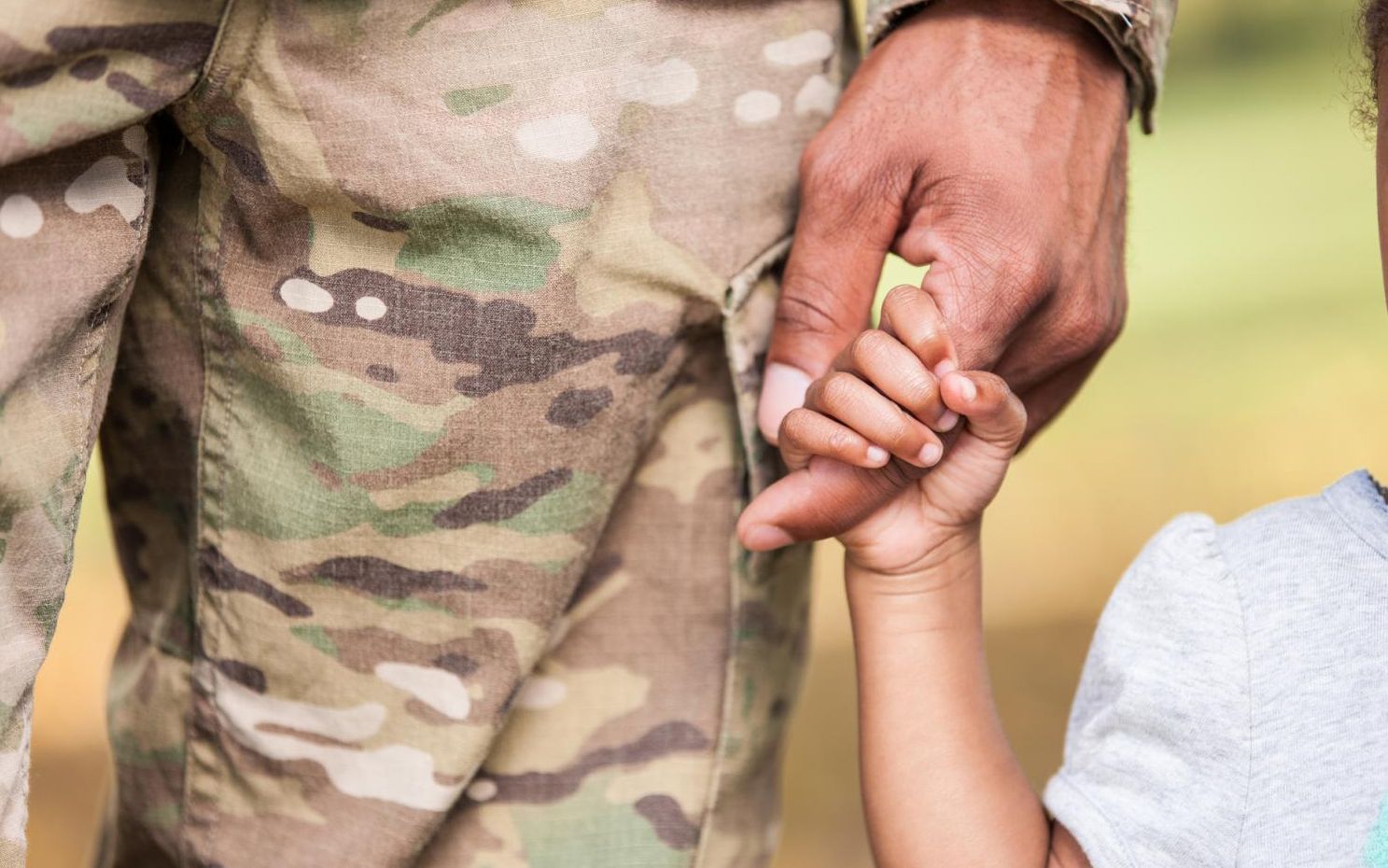Food and housing security task force shares progress updates for trustees

YV0A7595
Image: Mike McDade
May 6, 2021
As many college students across the country are increasingly facing food and housing insecurity, Penn State is developing new solutions, enhancing current resources and building a network of support to help tackle this rising challenge across the University’s campuses.
The University Task Force on Food and Housing Security shared a progress report of University-wide initiatives and programs today (May 6) during a hybrid meeting of the Board of Trustees Committee on Academic Affairs, Research and Student Life.
The 22-member task force — co-chaired by Andrea Dowhower, associate vice president for Student Affairs, and John Papazoglou, associate vice president of Auxiliary and Business Services — was charged in February 2020 by Penn State President Eric Barron to address housing and food insecurity for students across the Commonwealth. While the task force has completed its assessment of this issue and shared its recommendations, members of the group continue to have roles in advancing a variety of initiatives to support students across the University.
The task force, comprised of students, faculty and staff from across the campuses, examined this topic using available sources such as national data and results from Penn State’s 2019 Project Cahir Survey and CORE Survey.
While food insecurity across the University varies widely by campus location, roughly 35% of Penn State students have reported some level of food insecurity. For example, over 40% of student respondents at Penn State Abington and Altoona and 30% of University Park respondents have reported experiencing food insecurity.
“Students experience food and housing insecurity differently and across a continuum of need. We are focused on enhancing programming and support options to address the varying levels of need for our students — whether they are experiencing a chronic situation or dealing with a one-time challenge. Our goal is to continue to maximize our culture of care across the University and to build a network of support across our campuses and communities,” Dowhower said. “I am proud of the dedication and work that each member of this group has accomplished over the past year, and I look forward to our continuing efforts to help all Penn State students thrive.”
Joining Dowhower and Papazoglou during the meeting were Tim Balliett, director of the Center for Character, Conscience, and Public Purpose in Student Affairs; Stephanie Lanza, professor of Biobehavioral Health and director of the Edna Bennett Pierce Prevention Research Center in the College of Health and Human Development; Leah Bodinger, sophomore majoring in food science, co-leader of the Campus Hunger Project Cohort, the vice president of the Penn State Food Science Club, the vice president of Penn State Challah for Hunger; and Spencer Wallace, senior majoring in security and risk analysis and outgoing president of the Lion’s Pantry.
“With Penn State’s continued efforts to support students regarding food and housing security at such a critical time, I believe that we can make an impactful change in students’ lives,” Wallace said. “For example, from the time that I started at Penn State in 2017, the Lion’s Pantry has gone from a small food distribution unit to an impactful organization that reaches beyond University Park. There is incredible work going on, and I am truly excited to see what is in store for the future.”
During the meeting, the members shared updates on new and ongoing efforts across the task force’s five overarching recommendations, which they first shared with the Penn State community in February 2021, to:
Enhance infrastructure to focus on identifying and supporting students in need
- Assessment: Penn State will administer the national #RealCollege Survey to students across the Commonwealth this fall. Results will help serve as a baseline to further understand students’ needs, as well as provide the opportunity to reach out to individual students in need.
- University-wide food and housing security steering committee: To continue to provide oversight and leadership, the task force proposes that membership of a permanent advisory group include student leaders, faculty and representatives from areas such as Housing and Food Services, Student Affairs, Commonwealth Campuses, Undergraduate Education, the Graduate School, Development and more.
- Case management: Efforts are underway to expand staffing resources to enhance regional campus support and connect students with public assistance programs, community resources and University support.
Develop programs for food insecurity prevention and response
- Swipe Out Hunger: April’s five-day Swipe Out Hunger event allowed Penn State students to donate leftover meal plan dining dollars — and raised more than $12,000 for the Student Emergency Fund, which provides short-term financial assistance to students across the Commonwealth who are experiencing a crisis situation, such as food insecurity. Penn State’s partnership with this national program, much like 2019’s Turn the Tables events, will help sustain awareness of college student hunger.
- Bulk purchasing program: Penn State Housing and Food Services Purchasing is already leveraging its ability to procure food at wholesale prices direct from food manufacturers, and will continue to expand wholesale food purchasing programs to support Penn State’s campus food pantries across the Commonwealth.
- Food pantry improvements: At University Park, work is underway to make improvements to the student-run Lion’s Pantry to provide fresh, refrigerated and frozen foods, and to create a sustainable funding model for food pantries at all Commonwealth Campuses. In addition, the latest Penn State Food Services technology systems — like the Penn State Eats mobile ordering app that allows students to easily and anonymously place pick-up orders — along with other operational systems are helping to support student volunteer food ordering, transactions and reporting. Another key enhancement to support continued student-volunteer service expansion and innovations include securing University staff leadership through a Lion’s Pantry coordinator position.
Establish a permanent Student Emergency Fund
- Student emergencies: Efforts are moving forward to create a centralized application and distribution process and sustainable funding model — seeking permanent funding support from colleges, campuses, the University, philanthropic endowments and annual giving efforts — for a University-wide Student Emergency Fund. The fund offers financial assistance to students at all campuses facing financial and housing emergencies.
Provide funding to address housing insecurity, including emergency needs
- Housing insecurity: The University is moving forward with housing scholarships, affordable housing options for break periods for housing-insecure students, and emergency room-and-board vouchers.
Advocate for policies on local, state and federal levels
- Advocacy: A team of representatives from Student Care and Advocacy, Student Health Insurance Advocate, Student Affairs IT and Lion’s Pantry are collaborating to identify and reach out to students who may be eligible for SNAP benefits. University leaders continue to advocate for the extension of SNAP benefits for students beyond the pandemic, for affordable student housing in campus communities, and for an expansion of the eligibility for Federal Pell Grants.
Resources for students
As the University community continues to focus on programmatic opportunities and improvements, there are currently a variety of existing support resources available to students experiencing food and housing insecurity. For assistance with food and housing needs, students in need of support or who have questions are encouraged to reach out to resources at their campus, including the Student Care and Advocacy Office, Student Insurance Advocate, and Counseling and Psychological Services at University Park, or the counseling office at their campus. Staff in these offices can offer judgment-free guidance and support and help connect students with available resources.
Along with the Lion’s Pantry at University Park, many Penn State campuses also have food pantries and initiatives to assist students dealing with food insecurity, including Abington, Altoona, Behrend, Berks,, Brandywine, DuBois, Greater Allegheny, Harrisburg, Lehigh Valley, Mont Alto and Penn College.
The following resources also are available to students:
- Food insecurity resources in the State College Area
- Guide to public assistance programs
- Financial concerns and resources
- Central Pennsylvania Food Bank
- The Sokolov-Miller Family Financial and Life Skills Center
Story source: Penn State News.
Food and housing security task force shares progress updates for trustees

YV0A7595
Image: Mike McDade
May 6, 2021
As many college students across the country are increasingly facing food and housing insecurity, Penn State is developing new solutions, enhancing current resources and building a network of support to help tackle this rising challenge across the University’s campuses.
The University Task Force on Food and Housing Security shared a progress report of University-wide initiatives and programs today (May 6) during a hybrid meeting of the Board of Trustees Committee on Academic Affairs, Research and Student Life.
The 22-member task force — co-chaired by Andrea Dowhower, associate vice president for Student Affairs, and John Papazoglou, associate vice president of Auxiliary and Business Services — was charged in February 2020 by Penn State President Eric Barron to address housing and food insecurity for students across the Commonwealth. While the task force has completed its assessment of this issue and shared its recommendations, members of the group continue to have roles in advancing a variety of initiatives to support students across the University.
The task force, comprised of students, faculty and staff from across the campuses, examined this topic using available sources such as national data and results from Penn State’s 2019 Project Cahir Survey and CORE Survey.
While food insecurity across the University varies widely by campus location, roughly 35% of Penn State students have reported some level of food insecurity. For example, over 40% of student respondents at Penn State Abington and Altoona and 30% of University Park respondents have reported experiencing food insecurity.
“Students experience food and housing insecurity differently and across a continuum of need. We are focused on enhancing programming and support options to address the varying levels of need for our students — whether they are experiencing a chronic situation or dealing with a one-time challenge. Our goal is to continue to maximize our culture of care across the University and to build a network of support across our campuses and communities,” Dowhower said. “I am proud of the dedication and work that each member of this group has accomplished over the past year, and I look forward to our continuing efforts to help all Penn State students thrive.”
Joining Dowhower and Papazoglou during the meeting were Tim Balliett, director of the Center for Character, Conscience, and Public Purpose in Student Affairs; Stephanie Lanza, professor of Biobehavioral Health and director of the Edna Bennett Pierce Prevention Research Center in the College of Health and Human Development; Leah Bodinger, sophomore majoring in food science, co-leader of the Campus Hunger Project Cohort, the vice president of the Penn State Food Science Club, the vice president of Penn State Challah for Hunger; and Spencer Wallace, senior majoring in security and risk analysis and outgoing president of the Lion’s Pantry.
“With Penn State’s continued efforts to support students regarding food and housing security at such a critical time, I believe that we can make an impactful change in students’ lives,” Wallace said. “For example, from the time that I started at Penn State in 2017, the Lion’s Pantry has gone from a small food distribution unit to an impactful organization that reaches beyond University Park. There is incredible work going on, and I am truly excited to see what is in store for the future.”
During the meeting, the members shared updates on new and ongoing efforts across the task force’s five overarching recommendations, which they first shared with the Penn State community in February 2021, to:
Enhance infrastructure to focus on identifying and supporting students in need
- Assessment: Penn State will administer the national #RealCollege Survey to students across the Commonwealth this fall. Results will help serve as a baseline to further understand students’ needs, as well as provide the opportunity to reach out to individual students in need.
- University-wide food and housing security steering committee: To continue to provide oversight and leadership, the task force proposes that membership of a permanent advisory group include student leaders, faculty and representatives from areas such as Housing and Food Services, Student Affairs, Commonwealth Campuses, Undergraduate Education, the Graduate School, Development and more.
- Case management: Efforts are underway to expand staffing resources to enhance regional campus support and connect students with public assistance programs, community resources and University support.
Develop programs for food insecurity prevention and response
- Swipe Out Hunger: April’s five-day Swipe Out Hunger event allowed Penn State students to donate leftover meal plan dining dollars — and raised more than $12,000 for the Student Emergency Fund, which provides short-term financial assistance to students across the Commonwealth who are experiencing a crisis situation, such as food insecurity. Penn State’s partnership with this national program, much like 2019’s Turn the Tables events, will help sustain awareness of college student hunger.
- Bulk purchasing program: Penn State Housing and Food Services Purchasing is already leveraging its ability to procure food at wholesale prices direct from food manufacturers, and will continue to expand wholesale food purchasing programs to support Penn State’s campus food pantries across the Commonwealth.
- Food pantry improvements: At University Park, work is underway to make improvements to the student-run Lion’s Pantry to provide fresh, refrigerated and frozen foods, and to create a sustainable funding model for food pantries at all Commonwealth Campuses. In addition, the latest Penn State Food Services technology systems — like the Penn State Eats mobile ordering app that allows students to easily and anonymously place pick-up orders — along with other operational systems are helping to support student volunteer food ordering, transactions and reporting. Another key enhancement to support continued student-volunteer service expansion and innovations include securing University staff leadership through a Lion’s Pantry coordinator position.
Establish a permanent Student Emergency Fund
- Student emergencies: Efforts are moving forward to create a centralized application and distribution process and sustainable funding model — seeking permanent funding support from colleges, campuses, the University, philanthropic endowments and annual giving efforts — for a University-wide Student Emergency Fund. The fund offers financial assistance to students at all campuses facing financial and housing emergencies.
Provide funding to address housing insecurity, including emergency needs
- Housing insecurity: The University is moving forward with housing scholarships, affordable housing options for break periods for housing-insecure students, and emergency room-and-board vouchers.
Advocate for policies on local, state and federal levels
- Advocacy: A team of representatives from Student Care and Advocacy, Student Health Insurance Advocate, Student Affairs IT and Lion’s Pantry are collaborating to identify and reach out to students who may be eligible for SNAP benefits. University leaders continue to advocate for the extension of SNAP benefits for students beyond the pandemic, for affordable student housing in campus communities, and for an expansion of the eligibility for Federal Pell Grants.
Resources for students
As the University community continues to focus on programmatic opportunities and improvements, there are currently a variety of existing support resources available to students experiencing food and housing insecurity. For assistance with food and housing needs, students in need of support or who have questions are encouraged to reach out to resources at their campus, including the Student Care and Advocacy Office, Student Insurance Advocate, and Counseling and Psychological Services at University Park, or the counseling office at their campus. Staff in these offices can offer judgment-free guidance and support and help connect students with available resources.
Along with the Lion’s Pantry at University Park, many Penn State campuses also have food pantries and initiatives to assist students dealing with food insecurity, including Abington, Altoona, Behrend, Berks,, Brandywine, DuBois, Greater Allegheny, Harrisburg, Lehigh Valley, Mont Alto and Penn College.
The following resources also are available to students:
- Food insecurity resources in the State College Area
- Guide to public assistance programs
- Financial concerns and resources
- Central Pennsylvania Food Bank
- The Sokolov-Miller Family Financial and Life Skills Center
Story source: Penn State News.
Related People
Related People









